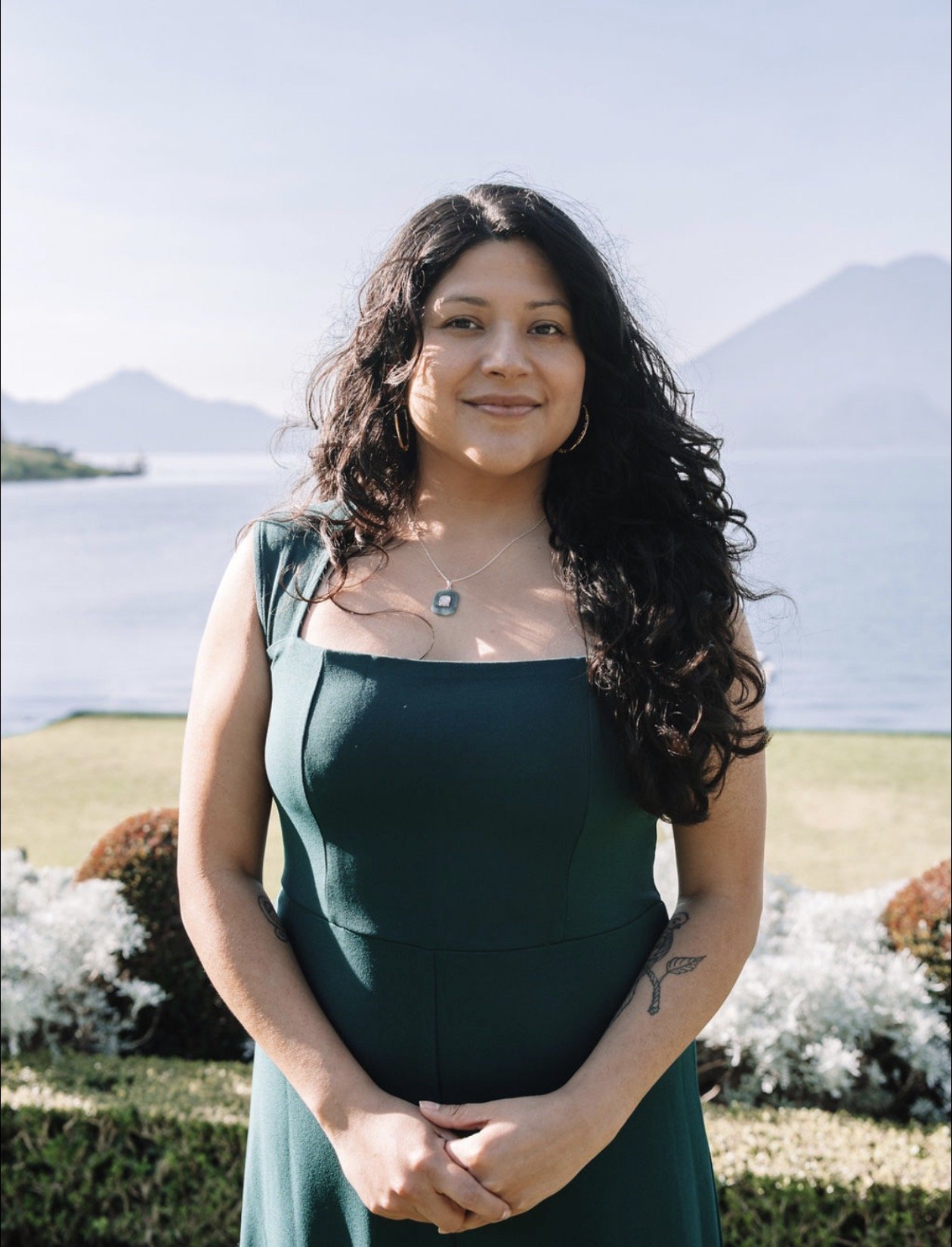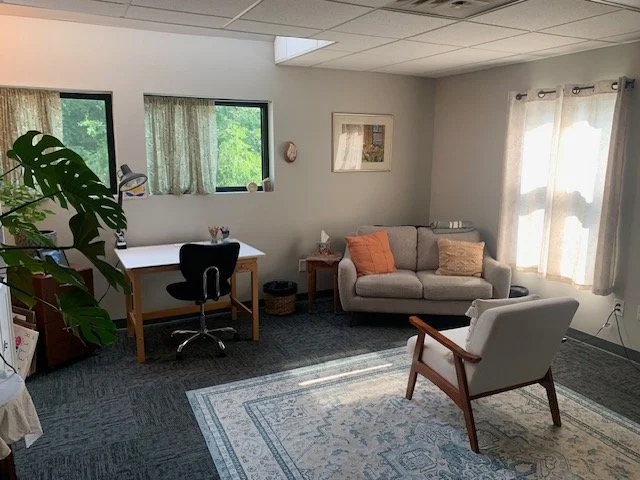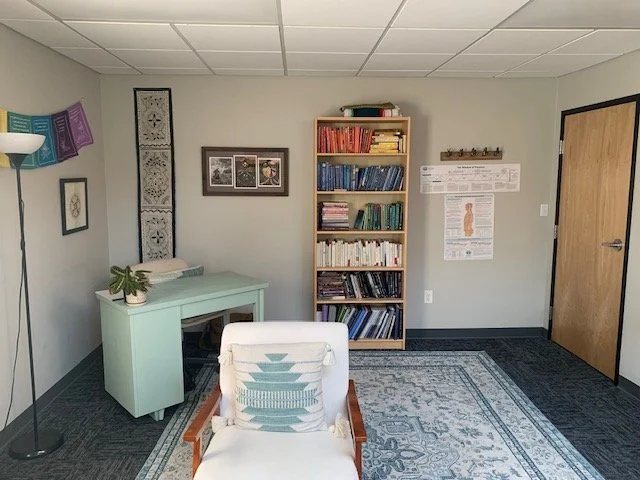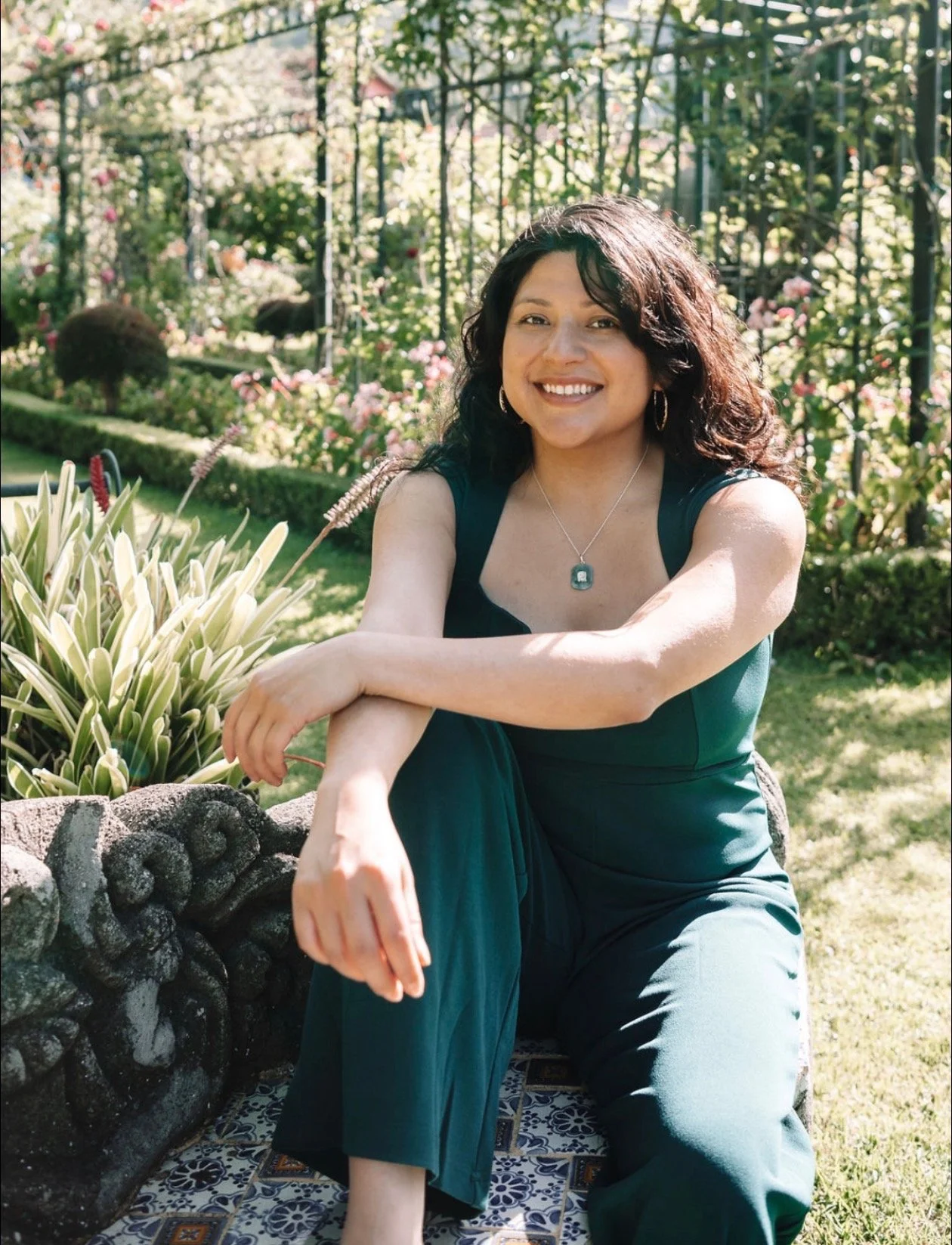
Hola! Hola!
I’m Wendy Barrios, LPCC, MFTC
I’m delighted you found me here.
Wendy’s therapeutic approach
If you find yourself caught in conflict, cycles of disconnection, or self-doubt, you are not alone. These struggles often don’t arise in isolation- they are shaped by our relationships, families, and the cultural and historical systems we live within. Therapy with me is about slowing down and creating a grounded space where your body, mind, and spirit can begin to re-regulate and heal. When safety is restored in the nervous system, clarity, connection, and self-trust can emerge.
I support individuals and couples navigating relational struggles, women’s issues, anxiety, trauma, and psychedelic integration. Together, we’ll work with the wisdom of the body, parts work, and experiential practices to repair attachment wounds, strengthen communication, and listen for the truths held in your intuition. We’ll also attend to the bigger picture—how intergenerational patterns, cultural expectations, and systemic forces have shaped your story—so you can discern what no longer serves you and reclaim the relationships and future you long for.
My work is trauma-informed, culturally affirming, and gender-affirming. At the heart of my work is the belief that you are inherently whole. I see therapy as a collaborative process: resourcing your nervous system, honoring the complexity of your lived experience, and nurturing the possibility of relationships—both with yourself and others that feel steady, soulful, and alive. My role is to walk beside you as you cultivate deeper self-trust, move through emotions with compassion, and create new ways of relating that ripple outward to your loved ones and communities.
Downtown Lafayette Office

“The most precious gift we can offer anyone is our attention. When mindfulness embraces those we love, they will bloom like flowers.”
-Thích Nhât Hanh
About Wendy Barrios, LPCC, MFTC
I hold a Master’s Degree in Clinical Mental Health Counseling and a Postgraduate Degree in Marriage and Family Therapy. I am bilingual in Spanish and English. As a first-generation Latina woman, I’ve experienced the challenges of disconnection from my cultural roots of my parents' homeland of Guatemala. The heartbreak of my parents’ divorce, and the experience of navigating two worlds from a young age, taught me to tune into emotional undercurrents long before I had the language for them.
Over time, this journey became not just of unwinding confusion, but deep healing and reclamation. It showed me what to look out for in relationships by the subtle signs of disconnection, the patterns we inherit, the longing for safety and affirmed for me that secure, nourishing love is possible.
Before becoming a therapist, I worked in body-based practices like massage and yoga, which taught me how much the body carries. Later, time spent learning from indigenous healers and plant medicine traditions from the South opened me up to a path of ancestral healing and integration. These experiences continue to inform how I hold space: with presence, humility, and reverence for the stories and wisdom each person carries.
Therapy has been a pivotal support for me in deepening insight and remaining curious and compassionate towards myself. My hope is that I can offer you a space where you feel empowered to awaken the inner healer within you!
I love dreamwork, meditation, ritual, tea ceremony, and the Maya Cosmovision. I enjoy going out for walks, practicing restorative yoga, and lying next to a river, hearing the water cascade over boulders. I am a cat mama to a snuggly Jedi, named Obi. Cacao, Rose, and Noya Rao are incredible plant allies I adore. I am forever a student and seeker of the great mysteries of life.
Send me a message for a consultation call, i’d be happy to connect with you.
Warmly,
Wendy Barrios, LPCC, MFTC.
Relationship Issues
Trauma & PTSD
Spirituality
Anxiety
Divorce
Family Conflict
Grief
Infidelity
Life Transitions
Self-Esteem
Stress
Racial Identity
Body Positivity
Women’s Issues
LGBTQ+
Focuses and specialties:
Modalities
-
Gestalt Therapy is a humanistic and experiential approach to psychotherapy that focuses on the present moment and the individual's experience in the here-and-now. It was developed by Fritz Perls, Laura Perls, and Paul Goodman in the 1940s and emphasizes awareness, self-discovery, and personal responsibility.
The term "Gestalt" refers to a whole or complete structure, and the therapy aims to help individuals become aware of how their thoughts, emotions, behaviors, and bodily sensations form a unified whole.In Gestalt therapy, the therapist creates a safe, collaborative environment where clients can explore their feelings and experiences in the present moment.
Who is it for?Gestalt therapy is suitable for individuals who are looking to:
Increase self-awareness: People who are struggling to understand themselves better and want to gain insight into their thoughts, emotions, and behaviors may find Gestalt therapy beneficial.
Resolve emotional issues: Individuals dealing with unresolved feelings from the past, including grief, trauma, or childhood issues, can work through these emotions in Gestalt therapy.
Improve relationships: People who want to improve their relationships with others—whether romantic, familial, or professional—can benefit from this approach by learning to communicate more authentically and be more present in their interactions.
Enhance emotional regulation: Those struggling with emotional overwhelm or difficulty managing emotions can gain greater control and understanding of their emotional responses through Gestalt therapy.
Overcome personal barriers or self-limiting beliefs: Individuals who are feeling stuck or unable to move forward in life, due to self-doubt or fear, may find Gestalt therapy a helpful tool for breaking through those barriers.
Improve creativity or personal expression: For those who feel disconnected from their creative self, Gestalt therapy can provide a space to explore emotions and perspectives that unlock creative potential.
Address existential concerns: Gestalt therapy can be useful for those questioning the meaning or direction of their lives, helping individuals address existential anxiety and find personal purpose.
-
Somatic therapy is a body-centered approach to healing that emphasizes the connection between the mind and body. It recognizes that emotional experiences, especially trauma, are often stored in the body as physical sensations.
In somatic therapy, clients are encouraged to become aware of and work through these bodily sensations to release tension, trauma, and emotional blockages.
Techniques such as breathwork, movement, touch, and mindfulness are often used to help clients reconnect with their bodies and process emotions that may be difficult to access through traditional talk therapy.
Who is it for:
People who struggle with emotional overwhelm, anxiety, or depressionHave experienced childhood trauma, relational trauma, or PTSD
Have difficulty connecting with or trusting their bodies
Are dealing with chronic pain, tension, or fatigue that might have emotional roots
Feel disconnected from their emotions or experience numbness or dissociation
Seek to improve their ability to self-regulate, make decisions, and communicate in relationships
-
Parts work, also known as Internal Family Systems (IFS), is a therapeutic approach developed by Dr. Richard Schwartz that views the mind as made up of different "parts" or subpersonalities, each with its own thoughts, feelings, and behaviors.
At the core of IFS is the belief that everyone has a Self, which is the compassionate, wise, and authentic part of us that can heal and guide the other parts. IFS aims to help individuals unburden these parts, restore balance, and allow the Self to lead the system toward healing.
Who is it for?
Parts work is beneficial for anyone who feels internal conflict, emotional distress, or patterns of behavior that don't serve their well-being. It is especially helpful for individuals who:Experience self-criticism, shame, or guilt related to past experiences or behaviors
Struggle with addictive behaviors, compulsive habits, or emotional dysregulation
Are dealing with trauma, anxiety, depression, or relationship difficulties
Feel stuck in unhelpful patterns and are unsure how to break them
Want to improve self-compassion and better understand their internal dynamics
Experience a disconnect between different parts of themselves, such as their rational mind and emotional self
-
Embodied Imagination is a therapeutic method that uses imagination, visualization, and body awareness to access unconscious material and foster self-discovery, healing, and personal growth. Developed by Robert Bosnak, the method integrates the body and the imagination in a way that allows individuals to tap into deeper, symbolic, and unconscious parts of themselves.
It is particularly focused on the lived experience of the body in relation to internal imagery, dreams, and emotions, recognizing that the body holds wisdom and can help unlock psychological and emotional blocks.
Who is it for?Embodied Imagination is beneficial for individuals who:
Feel disconnected from their bodies or emotions: Those who may struggle with emotional numbness, dissociation, or difficulty expressing themselves might benefit from this method as it helps reconnect them to their internal experience.
Have unresolved trauma: People who have experienced trauma (especially emotional or physical trauma) can use Embodied Imagination to access unconscious material stored in the body and mind, processing it in a gentle and non-invasive way.
Seek deeper self-awareness and growth: Anyone who is looking for a deeper understanding of their inner world, including desires, fears, and life patterns, can benefit from the introspective nature of this approach.
Work through creative blocks: Artists, writers, and other creative individuals who are struggling with creative blocks or self-doubt can use Embodied Imagination to tap into their subconscious for inspiration and creativity.
Want to integrate spiritual or psychological healing: People looking for a holistic approach to healing, where the emotional, physical, and spiritual elements are all addressed, may find Embodied Imagination particularly useful.
Are curious about the symbolic language of the unconscious: Those with an interest in symbols, dreams, and archetypal imagery can use this method to uncover the deeper meanings behind their experiences.
-
The Maya Cosmovision refers to the worldview or spiritual philosophy of the Mayan people, which encompasses their understanding of the universe, life, and the interconnectedness of all beings. It is a holistic framework that integrates the physical, spiritual, and natural realms, focusing on the idea that everything in the universe is interconnected, cyclical, and sacred. The Maya worldview is deeply embedded in their mythology, rituals, and daily practices, reflecting a profound respect for nature, time, and the cosmos.
Who is it for?The Maya Cosmovision is for:
Individuals Seeking Spiritual Connection: Those who wish to deepen their understanding of the spiritual world and their connection to the cosmos, ancestors, and nature.
People Interested in Ancient Wisdom: Anyone who is drawn to ancient spiritual traditions and cultural knowledge, particularly those of the Maya lineage will find the Maya Cosmovision meaningful.
Spiritual Seekers and Practitioners: People who are on a path of spiritual growth and healing, seeking to align themselves with natural rhythms, cycles, and the interconnectedness of all life.
People in Need of Guidance in Times of Transition: The Maya Cosmovision is helpful for individuals facing major life transitions (such as birth, death, or transformation) who seek spiritual guidance or a deeper understanding of their place in the cosmos.
Those Facing Ecological or Existential Concerns: The Maya worldview can be particularly relevant for individuals concerned about environmental sustainability and their role in protecting the natural world, as it emphasizes the sacredness of nature and interconnectedness.
-
The Gottman Method is a structured approach to couples therapy developed by Drs. John and Julie Schwartz Gottman, grounded in decades of research on what makes relationships succeed or fail. This method focuses on building a strong foundation of trust, emotional intimacy, and respect while helping couples develop effective communication and conflict resolution skills.
It is based on the Gottmans’ research into relationship dynamics, which identified key patterns that predict whether a relationship will thrive or deteriorate.
Who is it for?The Gottman Method is for couples who are:
Struggling with communication: Couples who find it difficult to communicate their needs, feelings, and desires can benefit from this method, which provides specific tools for improving communication and understanding.
Experiencing conflict: Whether couples are frequently arguing, dealing with unresolved conflicts, or feeling stuck in negative patterns of interaction, the Gottman Method helps them address these challenges constructively.
Seeking to strengthen their relationship: Even couples who are not experiencing major issues but want to deepen their connection, improve their emotional intimacy, or prevent future problems can benefit from the Gottman Method.
Dealing with trust issues: Couples who have experienced betrayal, infidelity, or breaches of trust can use this method to rebuild trust and re-establish emotional safety in the relationship.
Preparing for marriage: Couples who are about to marry or are in a long-term partnership can benefit from the Gottman Method as a preventive measure, ensuring they establish a strong foundation for a healthy, long-lasting relationship.
Facing life transitions: Couples who are navigating significant life changes (such as becoming parents, moving, or facing financial stress) can use this method to strengthen their bond and manage these transitions more effectively.
-
Emotionally Focused Therapy (EFT) is a structured, evidence-based approach to therapy that focuses on strengthening emotional bonds in relationships. It is rooted in attachment theory and helps individuals, couples, and families identify and shift negative interaction patterns, fostering deeper emotional connection and security.
Who Would Benefit from EFT?Couples struggling with communication issues, emotional disconnection, trust issues, or recurring conflicts.
Individuals dealing with relational wounds, attachment insecurities, or difficulties regulating emotions.
Families navigating conflict, strained relationships, or seeking to rebuild closeness and trust.
EFT is especially effective for those who feel stuck in negative cycles, experience relationship distress, or want to cultivate deeper intimacy and emotional safety in their connections.
Education +
Credentials
Licensed Professional Counselor Candidate, LPCC #0022215
M.A in Mindfulness-Based Transpersonal Psychology from Naropa University
B.A in Pre-Physical Therapy from
Cal State University of Dominguez Hills
National Holistic Institute,
School of Massage Therapy
Licensed Massage Therapist, LMT #0025702





